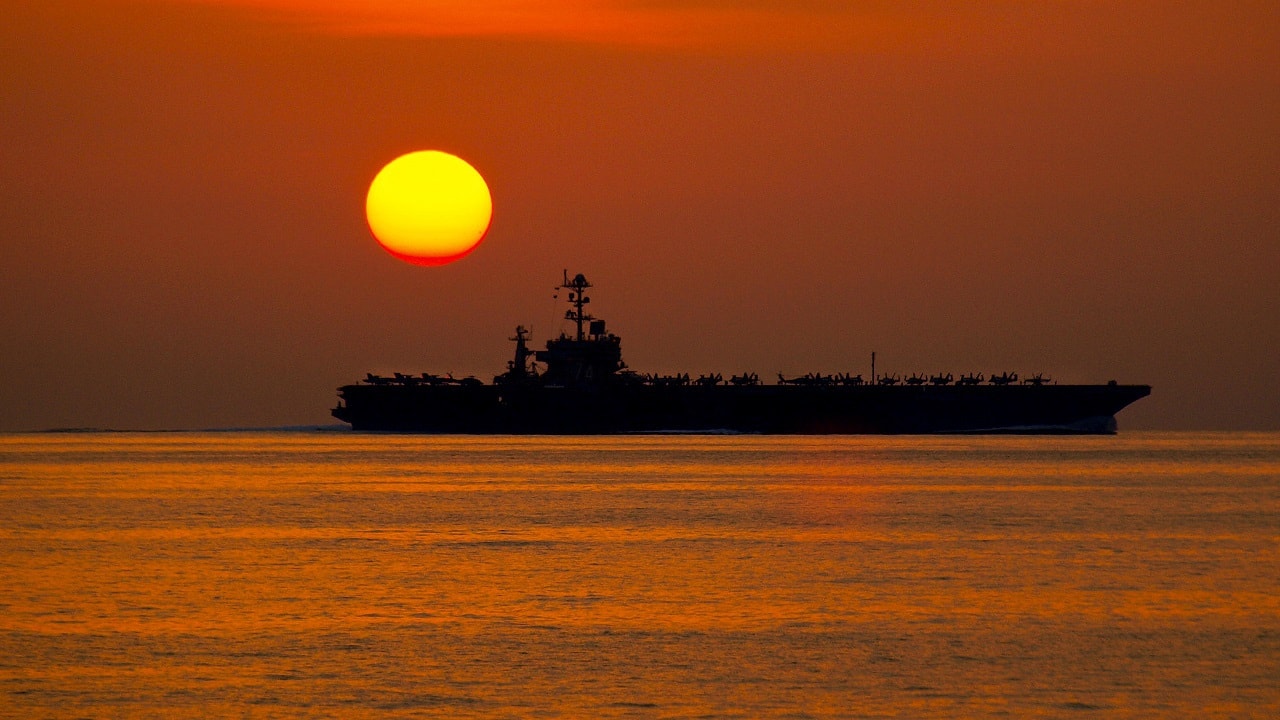With last month’s release of its new National Security Strategy, the Biden administration has framed America’s unfolding strategic competition with China in distinctly historic terms. “We have entered a consequential new period of American foreign policy that will demand more of the United States in the Indo-Pacific than has been asked of us since the Second World War,” the document reads.
The symbolism is rife. The allusion to the deadliest conflict in human history underscores the gravity of China’s contemporary threat to not just the United States, but to the allies and partners who live in Beijing’s shadow. Many of these nations have historically trusted the United States with their security and for good reason. Washington, after all, was instrumental in toppling Imperial Japan during WWII and helping to rebuild economies thereafter. Today, however, the People’s Republic of China is waging a diplomatic and economic offensive to undermine these alliances – and Beijing has been alarmingly successful in doing so.
Take the Pacific Island nations, for example. This past April, the PRC scored a strategic coup when it signed a security agreement with the Solomon Islands that dramatically expanded its standing and military access there. That, however, was just the beginning. Subsequently, in October, reports emerged that the country’s police officers were even receiving training and instruction in China. Additionally, Beijing has expanded its influence in the Pacific Island states through initiatives such as a multi-billion dollar resort development program in the Marianas and environmental diplomacy toward the Marshall Islands. Through these steps, and others, the PRC has steadily chipped away at the durability of America’s longstanding regional partnerships.
That the U.S. was unprepared or unable to prevent these inroads is concerning enough. But Washington’s reaction to Beijing’s advances is even more troubling. When the Solomon Islands and the PRC announced a joint port access agreement in August, America and Australia panicked. Senior Biden administration officials rushed to Honiara to undo the damage, while leaders in Canberra issued thinly veiled threats. These steps, however, only made matters worse, and President Mannasen Sogavare responded by denying U.S. naval vessels docking rights.
Similar rifts are emerging in America’s partnership with the Marshall Islands, for which the United States has long served as the chief financial benefactor. Decades of Cold War nuclear bomb testing have terraformed the archipelago. The U.S. has lagged in addressing the environmental and health crises currently gripping the islands – openings that Beijing is deftly exploiting.
What accounts for America’s slow and unserious response? Washington’s longtime dominance in the Pacific Island region undoubtedly plays a part. Simply put, given the historic position occupied by the United States – which protected the supply and communication links between U.S. and Australia, destroyed Tokyo’s war-making industrial capabilities, and liberated the Philippines more than half a century ago – policymakers in Washington have tended to take the Pacific Island states for granted.
That’s a mistake because those partnerships remain crucial to America’s regional priorities today. For instance, access to the South Pacific on the part of Australia, a key regional ally, will have to be protected with the Solomons’ help. Air bases in the Philippines have the range to strike targets in the Taiwan Strait and are consequently crucial to any potential scenario involving a Chinese invasion of the island. The Marshalls and Marianas, meanwhile, secure lines of supply and communication from Hawaii and the West Coast. Simply put, the U.S. cannot credibly project power into the Pacific without the partnership of these small island nations.
It’s a reality that U.S. officials don’t seem to understand. During her recent visit to the Solomons, Deputy Secretary of State Wendy Sherman lamented the absence of Prime Minister Sogavare from the main ceremonies – without recognizing that it was in fact America which, through its lack of dynamic engagement, had missed an opportunity to head off the CCP’s encroachment. But the United States now confronts a stark reality: when it comes to its regional position, heritage and hegemony are waning assets. And both are being progressively eroded by China’s inroads.
Not all is lost, however. Rejuvenating the alliances that ensured victory in World War II – and may ensure victory in the new Cold War with China – is still possible. But in order to do so, America can no longer afford to take these archipelagos for granted. Our position in the Pacific depends on it.
Kyle Sajoyan is a researcher at the American Foreign Policy Council in Washington, DC.

